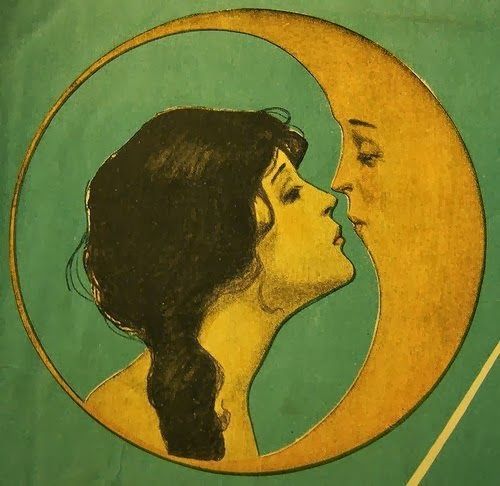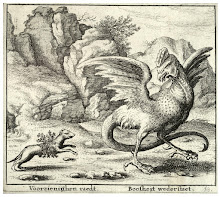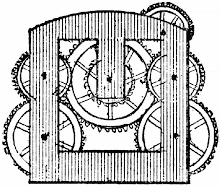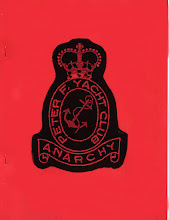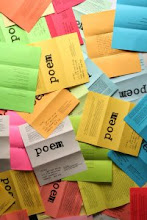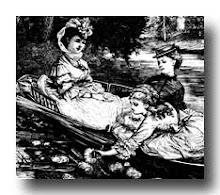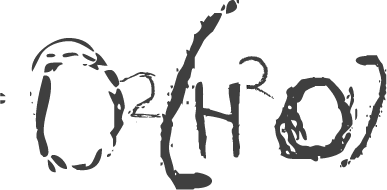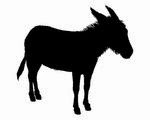Wednesday, April 29, 2020
some author activity: Eleftherion, Rogal, Clayton, Polyck-O'Neill, Christie + Trivedi
Melissa Eleftherion has some poems up at the tiny; Stan Rogal is interviewed over at Train : a poetry journal; Conyer Clayton is profiled over at Open Book; Julia Polyck-O'Neill has new work up at IceFloe Press; Jason Christie has a new poem up at at the Coach House Books blog; and Amish Trivedi has new work up at the re-launched Can We Have Our Ball Back?
Monday, April 27, 2020
Joe Blades (1961-2020)
Sad to hear that Fredericton editor, poet, publisher and purveyor of a legion of community actions, activities and creations, Joe Blades, died last week. The official obituary exists here, and rob mclennan's obituary lives here. Blades was the author of five chapbooks through above/ground press, including In the Valley of the Shadow of Poets' Corner (1994), Tribeca (1997), wriding (2000), “t sea ache,” produced as STANZAS #19 (February 1999) and Tribeca: Twentieth Anniversary Edition (2017), as well as numerous other publications in issues of The Peter F. Yacht Club, Missing Jacket and as numerous above/ground press "poem" handouts, new work and a statement in the Spotlight series, poems online for National Poetry Month on the Chaudiere Books blog here and here, and a chapbook through the dusie kollektiv. He will be missed.
Saturday, April 25, 2020
some author activity: Spinosa, Siklosi, Beaulieu, Swensen, Smith, Ross + Schmaltz,
Dani Spinosa writes on Kate Siklosi for Open Book, Kate Siklosi also has some new work up at Poem Atlas, as does Derek Beaulieu; Cole Swensen has new work up at The Brooklyn Rail, as does Dale Smith; Stuart Ross has a new poem online as part of National Poetry Month at the Chaudiere Books blog; and Dani Spinosa writes on Eric Schmaltz for Open Book.
Wednesday, April 22, 2020
some author activity: Pirie, Archer, Aigen, Boyle + Unsworth,
Pearl Pirie is interviewed over at talking about strawberries all of the time, as is Sacha Archer, and Razielle Aigen; Frances Boyle participates in the litter i see project; Lydia Unsworth has a new poem on the Chaudiere Books blog for National Poetry Month; and Razielle Aigen also has an essay in the "On Writing" series newly online on the ottawa poetry newsletter.
Saturday, April 18, 2020
some author activity: Spinosa, Barwin, Sikkema, Earl, Rogal + Siklosi,
Dani Spinosa begins her residency at Open Book with an article that references Gary Barwin and Michael Sikkema, which you should totally read; Amanda Earl has a new poem up at the Chaudiere Books blog for National Poetry Month; Stan Rogal has a new poem up at Train : a poetry journal; and Kate Siklosi has a new essay in the Talking Poetics series over at the ottawa poetry newsletter.
Sunday, April 12, 2020
Stephen Morrissey on Guy Birchard and Artie Gold
 |
| Photo by Stephen Morrissey : Home of Mary Brown and Artie Gold at 3667 Lorne Crescent |
Before George Bowering was GB there was Guy Birchard, maybe the first GB, both named as such by AG, Artie Gold. Valedictions (2019), published by rob mclennan's above/ground press, is Guy's farewell to three deceased artists, poet William Hawkins, musician and visual artist Ray 'Condo' Tremblay, and our mutual friend, poet Artie Gold. I met Guy in the spring of 1973, I met Artie through Guy. I never met Ray Tremblay but one day my brother took a taxi in Ottawa that was driven by William Hawkins; somehow the subject of poets came up and Hawkins said that he had heard of me. It's a small world; we were all a lot younger in those days, we knew a lot of people. And now Guy's memoir has caused me to think about Artie once again, he was an imposing and domineering figure for many of us in the early 1970s.
Life seems to be a series of coincidences and cumulatively they can add up to something meaningful, or nothing at all. For instance, Guy says that he first encountered Artie at a reading by Michael Benedikt, but I was also at that reading, it was on 16 March 1973 in the Hall Building, the ninth floor I believe, and it may have been at this reading that I also met Guy, sitting a few rows behind me. Around that time, winter-spring 1973, Hopeton Anderson invited Guy to read at Karma Coffee House and that was the occasion on which Guy met Artie Gold; to get this sequence of events accurate, it was also at Guy's reading at Karma that Richie Carson, another poet of that era, invited Guy to read again at Karma. By then I knew Guy and he extended to me an invitation to read after he read (the reading was on the third week of April 1973), just as Hopeton Anderson had extended a similar invitation to Guy, all of these readings taking place at Karma. Karma Coffee House was located in the basement of the Sir Williams University Student Union Building.
Artie was an extraordinary person, there was an aura of excitement surrounding him, he was a genuinely creative person; I doubt most of us meet someone like Artie Gold more than once in a lifetime. One winter day he and I and my first wife took a train to Ottawa and visited the National Gallery of Canada. For years I had a copy of The Far Point, bought on that occasion, an article in that issue was my introduction to what was happening in poetry in Vancouver where many of the most innovative poets were living at that time. There are other, happy memories of Artie; it was a seminal time when we were apprentices as poets. But now, after reading Guy's memoir of Artie, what is for me an unpleasant and pivotal memory has surfaced. It is a memory that explains what happened to my relationship with Artie. I remember talking with Artie and him telling me that he had published more than I had and that he was more important as a poet than I was. It may have been true but do we say that to a friend? I have never said that to another poet and no other poet has said it to me, except Artie.
Remembering that comment by Artie I also realized that it is may have been around this time that my relationship with him began to diminish. Artie was getting ahead in poetry, considering his talent and his intelligence the only thing that could hold him back was himself, the baggage of his life; the baggage eventually won: he was now being published by Talon Press in Vancouver; he was giving readings in BC, Ontario, and Quebec; other better known poets had heard of him and made him a celebrity of sorts; he was one of three poetry editors at Vehicule Press, the other two editors were Ken Norris and Endre Farkas. Artie had now become a "somebody". I benefited by Artie's ambition, Artie, Ken, and Endre published my first book, The Trees of Unknowing (Vehicule Press,1978) and I am grateful to them and to the press for that.
So, Artie moved on and was an important poet with a future. Then, Si Dardick, the owner of Vehicule Press, fired his three poetry editors and installed someone else in the job; I don't know the details of this firing but I do know that the books the new editor published never interested me; the emphasis was now on formalistic poetry.
I still knew Artie after he was no longer an editor at Vehicule Press; I gave him readings for several years, beginning in 1976, at the college where I was now teaching, I knew he needed the money. From these readings he would go home with a little money and office supplies from the college. But there were other changes happening in Artie's life; his decline into poverty, worsening health, and increasing drug dependency is usually dated from when Mary Brown, who supported Artie, ended their relationship by moving a few doors away but still on Lorne Crescent; later she moved to a house she helped build in the country. Mary Brown died in 1999. But now I wonder if Artie's decline might also be dated from when he was no longer an editor at the press.
My long forgotten memory of Artie's comment to me had other repercussions on our relationship; it explains to me my distance from Artie in the years that followed. For instance, I continued knowing Artie but on a more formal basis, the old familiarity we once had was gone. Nothing lasts forever, everything changes. When he stored his boxes of archives in our basement, around 2005, I offered to give him a receipt (of all things!) and this surprised Artie as much as it surprised me at the time; however, I didn't want any problems with Artie and I didn't want Artie coming back at me saying I had polluted his papers with cat dander, an alleged trigger for his COPD (not asthma). When I bought groceries for Artie, or clothes, or what have you—this was when he had friends supporting him so he could remain living autonomously—if I said I didn't have the time to go to several shops that day to buy him croissants or cans of chick peas he wouldn't push me to do it, he just agreed and let it go, in fact, I noticed he was uncharacteristically meek in accepting what I said. No good deed goes unpublished is one of my mottoes and it included Artie Gold.
Artie died in February 2007 and later that year a small group of us scattered Artie's ashes at places we thought significant to Artie. One of the people at this gathering told me that when she separated from her husband Artie phoned to offer his sympathy, at first this was an incredible thing for Artie to have done, she must have felt supported by Artie's phone call; but, more importantly, it must have at first felt doubly compassionate as it was from someone who was rarely compassionate about anybody. The point of this anecdote is that literally thirty seconds after Artie expressed his sympathy he returned to his favourite subject, himself. We both laughed at this, it was "good old Artie" being himself.
When I first saw Artie's cover drawing on his last chapbook, The Hotel Victoria Poems (above/ground press), I thought it was prescient, that this was the same bed in which the police discovered his body on Valentine's Day in February 2007. But I was wrong, Guy tells me this image appeared on a postcard he received when Artie was still living on Lorne Crescent, it is not the same room and bed where he died in 2007. Artie was a friend of our youth, he was one of the first real poets some of us met on this journey in life.
Labels:
Artie Gold,
Guy Birchard,
review,
Stephen Morrissey,
William Hawkins
Saturday, April 11, 2020
some author activity: Kasimor, Eleftherion, Archer, Tracy + Sikkema,
Mary Kasimor and Melissa Eleftherion have work in the new issue of MiGoZine: Kasimor's is here, and Eleftherion's are here and here and here; Melissa Eleftherion also has some new work up at talking about strawberries all of the time, as does Mary Kasimor; Sacha Archer has new work up at Grey Borders; Dale Tracy has a new poem up at the Chaudiere Books blog for National Poetry Month; and Michael Sikkema is interviewed over at talking about strawberries all of the time.
Saturday, April 4, 2020
some author activity: Koss, Sikkema, Spinosa, Radmore + Baus,
Zane Koss is interviewed over at Touch the Donkey; Michael Sikkema has a new essay in the "On Writing" series at the ottawa poetry newsletter; Dani Spinosa is interviewed over at Train : a poetry journal; Claudia Coutu Radmore is interviewed via Chaudiere Books; and Eric Baus has a new essay in the Talking Poetics series over at the ottawa poetry newsletter.
Subscribe to:
Posts (Atom)







![tenth anniversary Touch the Donkey [a small poetry journal] sale! until the end of April!](https://blogger.googleusercontent.com/img/a/AVvXsEi2jYOBBVNaoMuhOj-BprMchSuruXvCZH2PPniZkk9D30GVF_lQsZ-m9HqsyE4Vz_R01ijgBaze59MbSu3oKIdu4myONflgnuvoMuEdo4qPC7xf0-wB8eukbB6zK5ClasCL-N-iFKZDET3ZL6Ryt4ou8vlwmQEpOEj9Ng4Dcfuv2qybNKlVnRRfpuXrYtGG=s220)



